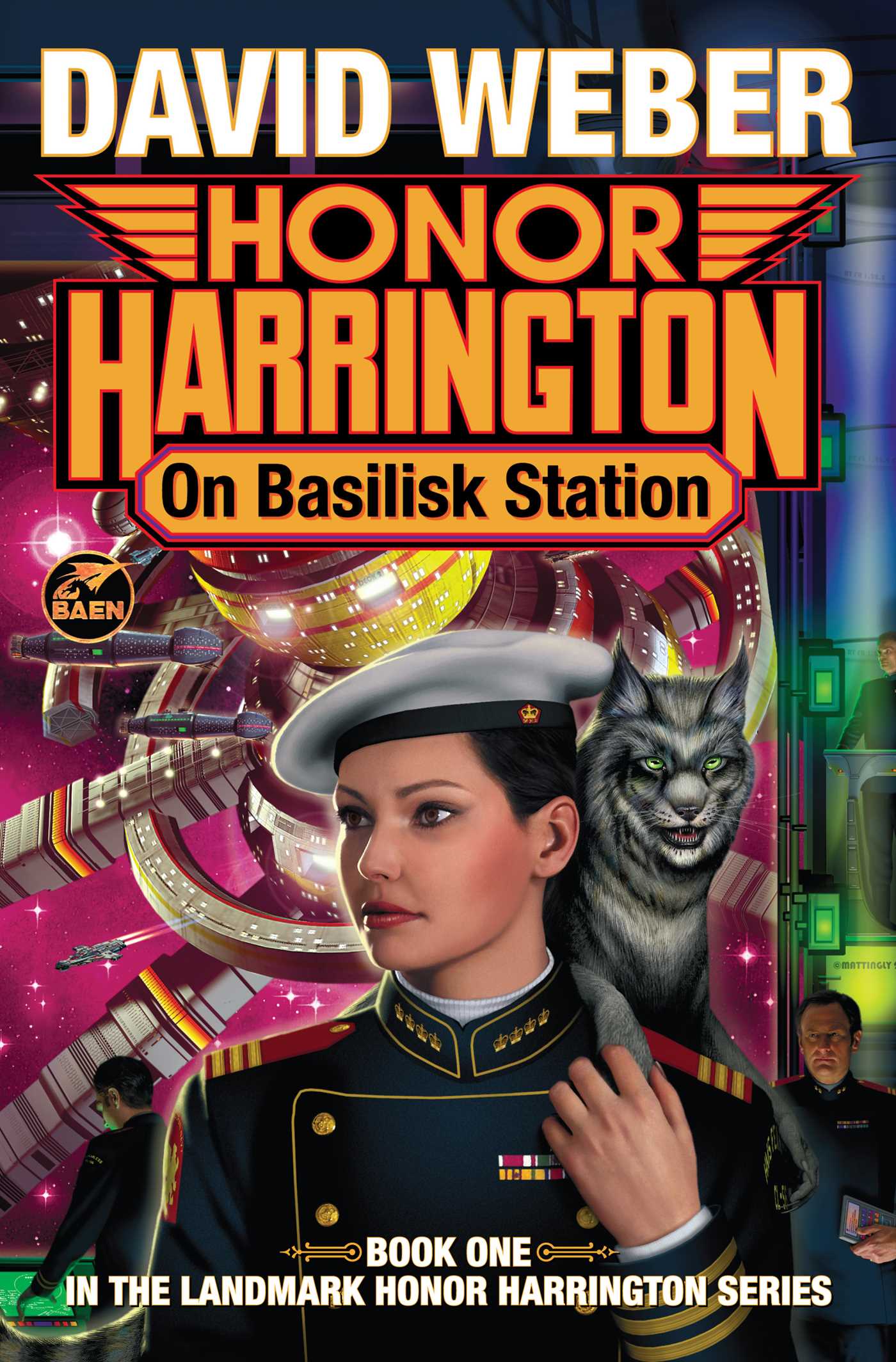On Basilisk Station

Review
On Basilisk Station, by , is the first book in the long-running Honor Harrington series of military science fiction. It introduces Commander Honor Harrington, a brilliant naval officer exiled to a remote star system with an aging ship and a demoralized crew. There, she must enforce the law and uncover a smuggling plot that proves to be the opening move in an interstellar war.
’s Honor Harrington is an age-of-sail adventure series like ’s Aubrey–Maturin or ’s Hornblower Saga. It follows Honor Harrington as she climbs the ranks of the Royal Manticoran Navy, which is essentially the Royal Navy with rocket boosters attached. ’s answer to “How do I get Napoleonic battle lines in space?” is part of what makes that translation work so well. Ships have gravity sails that can’t be fired through from the front, forcing broadside engagements. Add wormholes to create choke points and faster-than-light travel affected by gravity to act like shallows and currents, and you have Lord Nelson, but in the void.
The worldbuilding uses ideas I’ve seen in other series. Wormhole-connected empires show up again in ’s Teixcalaan books and ’s Commonwealth Saga. The Marines, who can drop from orbit and bounce around in powered armor, recall the Mobile Infantry from Starship Troopers. Their colonial policing role, where they massacre the technologically inferior natives, feels right out of Zulu. The Reagan Democrat politics weaves into On Basilisk Station date it a bit, the same way that ’s Third Way politics do in City on Fire.
On Basilisk Station is at its best when it focuses on process: Harrington forging her officers and ratings into a cohesive crew, methodically planning how to meet impossible demands, and following every lead to uncover the smugglers and their deeper conspiracy. It also made me realize that the lack of competence is part of why I didn’t like ’s similar The Final Architecture as much. In science fiction, military crews are competent and duty-bound, while civilians are friendly and cozy but not particularly good at their jobs—in fact, that’s often part of the charm. It’s also part of the reason, I now realize, why I’ve always preferred Star Trek: The Next Generation and Deep Space Nine to Star Wars.
Competence—the fantasy that someone out there knows what to do and has the will to do it—has a strong appeal these days, especially with the rise of the incompetent far right. It’s why I love thrillers like ’s Jack Ryan series and ’s Jason Bourne series, and sci-fi versions like ’s The Murderbot Diaries and ’s A Mote in Shadow.
But it’s clear was still learning his craft here. I know from his short stories in The Triumphant and Last Stand that he can write fantastic, emotional action scenes, but he didn’t quite pull it off in On Basilisk Station. There’s plenty of action, but it’s either too short—like the initial fleet trials—or too long—like the final desperate chase. In the end, Honor predicts her enemy’s exact plan but still gets her ship blown half to hell. The emotional impact was supposed to come from the loss of her ship and crew, but it feels more like Harrington simply made a mistake—not exactly the image of competence she’s meant to embody.
This book was a fast, fun read that I breezed through, much like Bobiverse or War Horses. I’m still trying to avoid reading long series back-to-back, so I’m going to read A Canticle for Leibowitz next, then circle back to Bolo and The Fall of Hyperion before diving into The Honor of the Queen.